

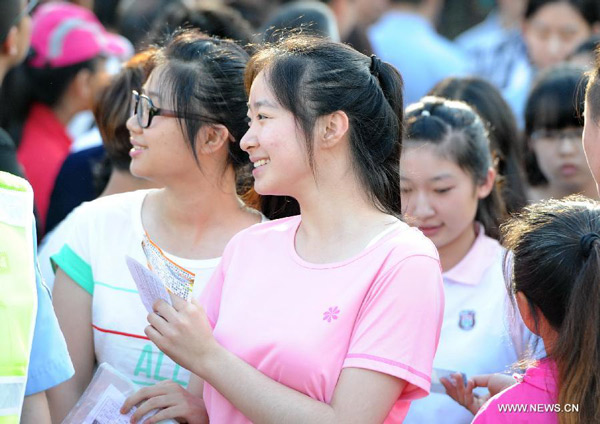 |
| Candidates walk out of an exam site at No. 8 High School in Changchun, capital of northeast China's Jilin Province, June 7, 2015. The two-day exams began on Sunday, with 9.42 million people sitting for the exams this year. Thirteen provincial-level regions will also arrange exams for additional subjects on June 9. (Xinhua/Zhang Nan) |
Besides, Law enforcers have already seized 23 suspects in a special campaign to crack down on the sale of wireless devices used for cheating, as well as sale of self-proclaimed key to exam questions and the practice of using substitute exam sitters, according to the education ministry.
The national college entrance exam, commonly known as gaokao, is usually considered the most important exam for Chinese students as it determines whether they can enter a university and whether they can be admitted to desired departments. Because the stakes are high, cheating is a recurring problem.
More than 80 education officials, teachers, invigilators, students and even parents received punishments ranging from warnings to dismissals in Hubei Province in central China after last year's "Gaokao."
About 9.42 million Chinese high school graduates, slightly less than the population of Sweden, will take this year's exam.
Undercover reporter's cheating story debated
Some media industry insiders and researchers applauded the courage and resourcefulness of the journalist and praised the report for providing solid proof and detailed descriptions about the secret process behind the illegal replacement of students for the annual exam, or gaokao.
"It's what a journalist should do," said Xu Qingliang, former executive editor of Southern Metropolis Weekly, which is part of the same media group as Southern Metropolis Daily, the covert journalist's employer.
By contrast, Chen Baocheng, a reporter from Caixin Media criticized the covert journalism, saying that because the reporter used another person's identity to gain admittance, he committed the same act as the those he was attempting to uncover, and he should be punished. A news article is no excuse, Chen said.
That view is not shared by many. The undercover journalist informed the local public security bureau about his intentions before entering the testing room on Sunday, and he wrote his intentions on the test paper. That sets him apart from other ghostwriters, who are making money by taking exams for others, Xu said.
The student whose name the reporter used to gain admittance will not benefit.
But it's not a good timing to release a story about cheating on the first day of the two-to three-day national exam. The attention from the education authorities and society may make some students nervous, he said.
Though he supported the publication of a report on the sensitive topic of ghostwriters in the national exam, Wang Tianding, a professor in the journalism and communications school at Xi'an International Studies College, said the covert journalist's eye-catching story might not be appropriate because sitting in as a replacement for others in the national exam is illegal.
At least one lawyer thought otherwise: "Though there are discussions on whether the reporter's behavior is appropriate or not, it's not illegal under the law," said Yi Shenghua, a Beijing-based criminal lawyer.
He said the reporter did not make money by replacing another for the exam. He was only digging up facts and collecting proof about ghostwriters and had no intent to commit a crime.
 |
 J-11 fighters in air exercise
J-11 fighters in air exercise Beauties dancing on the rings
Beauties dancing on the rings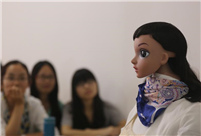 Charming robot teacher gives lecture in Jiangxi
Charming robot teacher gives lecture in Jiangxi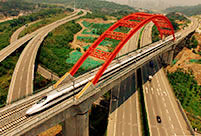 Hefei-Fuzhou railway line put into trial operation
Hefei-Fuzhou railway line put into trial operation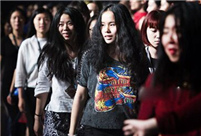 Graduation season of a costume designing major
Graduation season of a costume designing major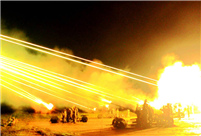 PLA soldiers operate antiaircraft guns in drill
PLA soldiers operate antiaircraft guns in drill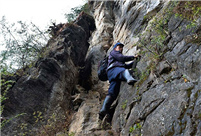 Villagers pick cubiloses on cliff in Sichuan
Villagers pick cubiloses on cliff in Sichuan Attendants-to-be join Mr. & Miss Campus Contest
Attendants-to-be join Mr. & Miss Campus Contest China hosts overseas disaster relief exercise for the first time
China hosts overseas disaster relief exercise for the first time Manila overvalues new pact with Tokyo
Manila overvalues new pact with Tokyo The mysterious ‘people of Chaoyang district’
The mysterious ‘people of Chaoyang district’ NDRC mulls new guidelines for auto sector
NDRC mulls new guidelines for auto sector Opportunists in Hong Kong target traders to exploit resentment of mainland
Opportunists in Hong Kong target traders to exploit resentment of mainlandDay|Week